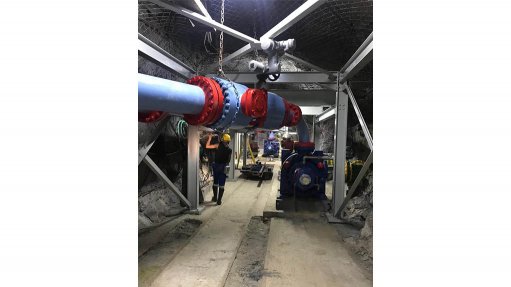
CUTTING COSTS RGR Technologies has developed products that are less costly to manufacture as price is the determining factor when mining companies procure equipment and not local content
The demand for valves specified for mining applications in the rest of Africa is much higher than demand in South Africa, says valves manufacturer RGR Technologies MD Marinus Ras.
“New underground mines are starting to come on stream in certain parts of the continent, where greenfield construction and operational projects are fairly numerous.”
While RGR is working on securing orders for these projects, Ras says pricing is competitive, with the cost of a valve valued above its quality.
Conversely, demand for valves in the local mining industry is “very flat”, as new mining project developments are scarce.
“Additionally, these projects are in the hands of a few engineering, procurement and construction (EPC) companies and the competition is fierce. It seems that the world’s major mining houses have lost interest in South Africa,” Ras tells Mining Weekly.
The country presents a tough political climate and business environment, with regulations making it unattractive for large and medium-sized enterprises to invest. Consequently, little exploration is being undertaken for new orebodies.
Further, the manner in which the local industry procures equipment is changing from mainly being undertaken by EPCs to buying being dictated by strict procurement policies and centralised buying that considers price and not quality when awarding tenders.
“Cheap imports are hurting the local valves manufacturing industry. Price is the determining factor and companies are choosing to ignore local-content requirements when procuring equipment, based on the High Court ruling in September last year that the Mining Charter is a policy instrument and nonbinding legislation, setting aside the procurement targets stipulating 60% local content,” highlights Ras.
In line with this trend, RGR has developed products that are less costly to manufacture, but still follow the same design characteristics of its main products, which comprise tried-and-tested valves that have successfully delivered according to specifications over the past 30 years, he adds.
“These new products have undergone cycle testing at our factory in Chloorkop, Johannesburg, and have passed our required standards. They will be ready for market in the next few months, and we are developing price lists for the entire range.”
No serious challenges were experienced during the development of these valves, which are manufactured using different materials, compared with RGR’s existing range, making them suitable for lower pressure ranges.
RGR has secured valve orders this year for the expansion of existing facilities, the replacement of valves and valve repairs. However, the company notes the “
shortage of materials and the impact of power disruptions necessitate longer lead times for our deliveries. Luckily, so far, our manu facturing facility has not been severely affected by power supply challenges,” concludes Ras.